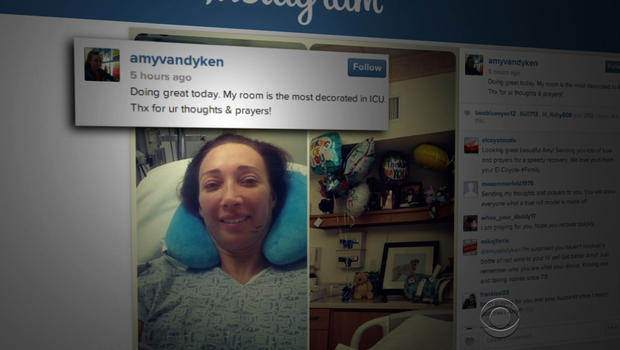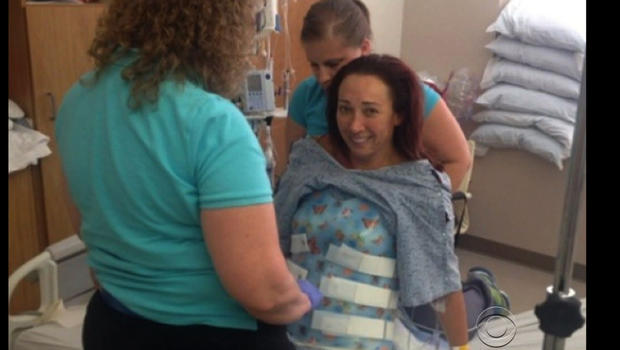New treatment may offer hope for injured Olympian
An Olympic swimmer is fighting to regain use of her legs.
Amy Van Dyken-Rouen, now 41, suffered a devastating spinal injury that was once considered irreversible.
Van Dyken-Rouen posted photos on Instagram from her hospital bed Tuesday. One caption reads: "Doing great today. My room is the most decorated in ICU. Thx for ur thoughts & prayers!"
Van Dyken-Rouen was riding in an all-terrain vehicle last Friday when she flipped down an embankment. The six-time Olympic gold medalist was airlifted to a hospital in Scottsdale, Arizona, where she underwent emergency surgery.
Over the weekend a family member posted a statement saying, "Amy's spinal cord was completely severed at the T11 vertebra, but, miraculously, a broken vertebra stopped within millimeters of rupturing her aorta."
The T11 vertebra is in the middle of the back. Doctors say a complete severing of the spine is rare.
Doctors thought Dustin Shillcox's spine was completely severed after a car accident four years ago.
"I never had any progress back as far movement or any signs that I would have any movement or walk again," Shillcox said.
Researchers at the University of Louisville implanted an electronic spinal cord stimulator into his lower back. In April, Shillcox told CBS News' chief medical correspondent Dr. Jon LaPook the experimental therapy allowed him to move his legs and wiggle his toes by thought.
"When I think to move my leg, my toe or my ankles, when I'm turned on I can do it," he said. "It's really exciting."
The procedure worked in all four patients it was tried on. A major finding from the research was the discovery that a spine that appears to be completely severed may still have microscopic connections.
Dr. Susan Harkema directs the research at the University of Louisville.
"The fact that they can only move when the stimulator is on tells us there must be some connections left from the brain. But because we can't detect them any other way, they must be very, very small," she said.
Van Dyken-Rouen's husband told CBS News on Tuesday they hope her spine isn't completely severed and that they haven't talked about what treatment may be best for her. But the advancements in spinal cord treatments do provide hope."

